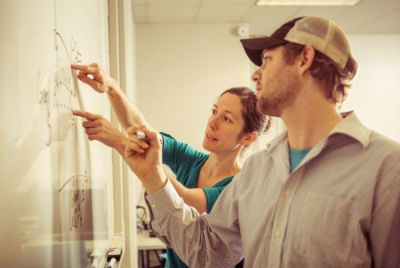
If you visited a lake this past summer for a day at the beach or on a boat, you know how relaxing and refreshing time on and around the water can be.
A team of researchers led by Associate Professor Kelly Cobourn of the College of Natural Resources and Environment has been exploring the ecological impact of humans on lakes, as well as how these bodies of water can impact people, with a goal of producing a new model for use in protecting and maintaining lakes.
At the heart of their effort is data. The team collected data for pristine and polluted lakes across the north-central and northeastern U.S. on land-use and management decisions, and the organizations formed by people to protect their lakes. The team uses the data to study how humans affect — and are affected by — changes in water quality.
“People derive a lot of value from connecting with lakes,” said Cobourn, a faculty member in the Department of Forest Resources and Environmental Conservation and a Global Change Center affiliate. “We also understand that humans degrade the quality of lakes with some of the choices they make. We provide a roadmap for understanding and approaching these problems that hasn’t been used before.”










